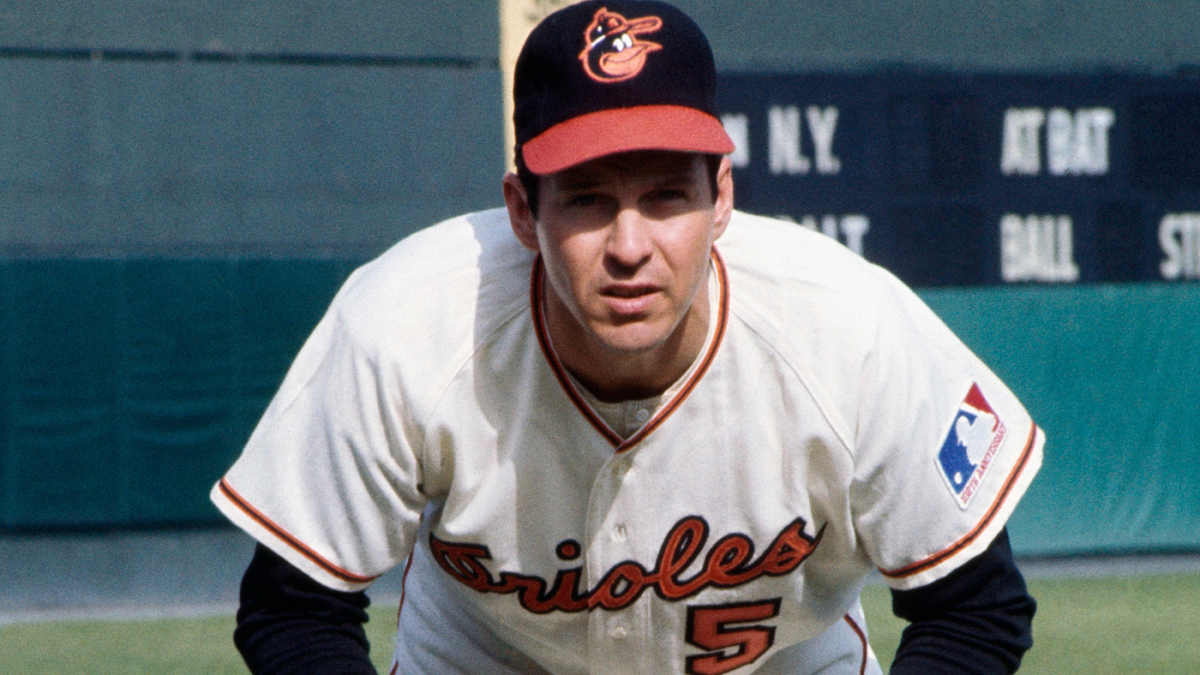In the world of baseball, some names are etched into the annals of history, becoming synonymous with the very essence of the sport. Brooks Robinson, affectionately known as “Mr. Oriole,” was undeniably one of these luminaries. His recent passing at the age of 86 has left the baseball community and fans worldwide in mourning, as they reflect on the remarkable life and career of this legendary third baseman and Hall of Famer.
Brooks Robinson was more than just a baseball player; he was a living embodiment of the Baltimore Orioles, spending his entire 23-year Major League Baseball career in the team’s colors. Born on May 18, 1937, in Little Rock, Arkansas, Robinson’s journey to baseball stardom began at Little Rock Central High School. His talent quickly became evident, and he continued to hone his skills at the University of Arkansas at Little Rock.
In 1955, Robinson signed with the Baltimore Orioles for a mere $4,000, making his Major League debut later that same year at the tender age of 18. Little did the world know that this young, promising talent would go on to become one of the most iconic figures in baseball history.
Robinson’s early years with the Orioles were marked by challenges and struggles, including time spent in the Minor Leagues and injuries. However, it was in the 1960 season that Robinson’s star began to shine brightly. Named an All-Star for the first time and securing his first Gold Glove, he embarked on a journey that would see him earn an incredible 16 Gold Glove Awards during his career.
“The Human Vacuum Cleaner,” as he was affectionately nicknamed, was celebrated for his exceptional defensive skills at the third base position. His ability to make seemingly impossible plays left fans and fellow players in awe. The late Frank Robinson, another Hall of Famer and Orioles legend, once marveled, “He was the best defensive player at any position.”
Robinson’s contributions extended beyond his defensive prowess. He was an 18-time All-Star, the recipient of the 1964 American League MVP Award, and a vital part of the Orioles’ success during the late 1960s and early 1970s. Under his leadership, the Orioles clinched their first two World Series titles in 1966 and 1970, with Robinson’s MVP-worthy performance in the latter solidifying his place in baseball history.
In 1983, Robinson achieved another milestone by being inducted into the Baseball Hall of Fame, becoming the first third baseman to be elected in his first year of eligibility. This accolade was a testament to his enduring legacy and the profound impact he had on the game.
Robinson’s association with the Orioles went far beyond his playing days. He returned to the team as a player-coach in 1977 and continued to serve as a color commentator for their television broadcasts from 1978 to 1992. He remained a cherished figure in the Orioles organization and the city of Baltimore.
Despite health challenges in his later years, including a battle with prostate cancer in 2009, Robinson remained a stalwart presence. He was a symbol of resilience and unwavering dedication, much like the Orioles themselves.
Robinson’s legacy is not just about baseball statistics and awards; it’s about the humility, talent, and dedication he displayed throughout his life. He never sought the spotlight, but he earned a place of honor in the hearts of Baltimore and baseball fans everywhere. As the baseball world mourns his passing, Brooks Robinson’s enduring impact will continue to inspire generations to come.




